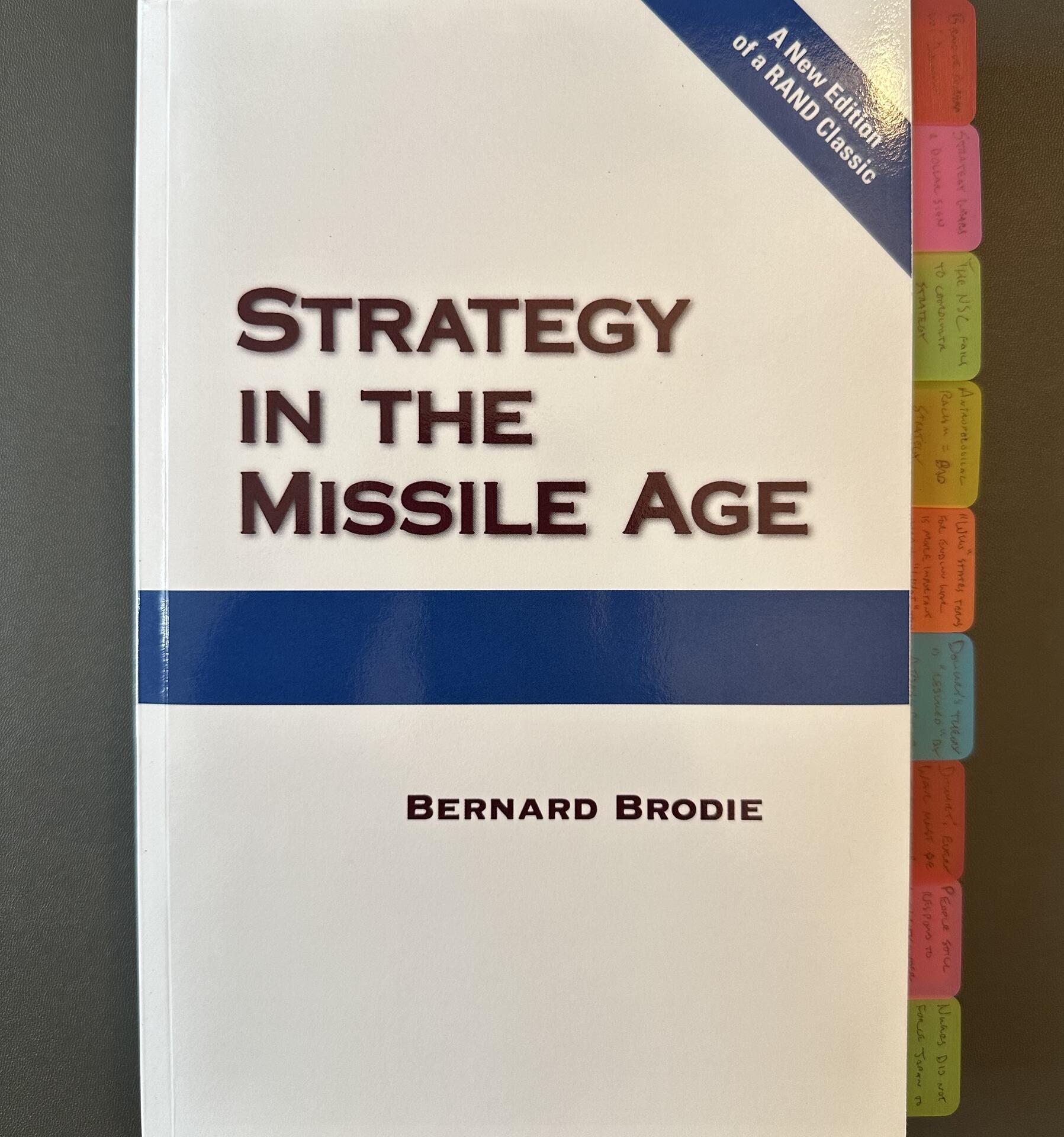steve on Nostr: “Strategy in the Missile Age” by Bernard Brodie ⭐️⭐️⭐️⭐️ Known as ...
“Strategy in the Missile Age” by Bernard Brodie
⭐️⭐️⭐️⭐️
Known as the “American Clausewitz” and credited as the first nuclear strategist, Brodie 1959 treatise on nuclear deterrence was ahead of its time. The book begins with a thorough literature review of military strategy dating to the Napoleonic era and traces themes to the nuclear age. The ballistic missile, more so than the bomber, represented a tectonic shift in the transitional offense/defense balance that previously governed strategy. As ballistic missile defense was largely non-existant at the time, strategy shifted from countering employed weapons to deterring an adversary from using them in the first place. Brodie wrote the book against the backdrop of Eisenhower’s “massive retaliation” nuclear strategy and consequently advocated for a more nuanced flexible response approach that saw adoption during the Vietnam War (albeit not in a nuclear context). Although repetitive at times, this book clearly articulates how nuclear weapons deter as much as their holder’s credibility will allow. While the Information Age has introduced significant nuance in deterrence theory, Brodie’s work is still largely relevant even amidst contemporary fears of a Russian nuclear strike in Ukraine. This book is foundational for anyone studying nuclear weapons and their implications today. 🚀
⭐️⭐️⭐️⭐️
Known as the “American Clausewitz” and credited as the first nuclear strategist, Brodie 1959 treatise on nuclear deterrence was ahead of its time. The book begins with a thorough literature review of military strategy dating to the Napoleonic era and traces themes to the nuclear age. The ballistic missile, more so than the bomber, represented a tectonic shift in the transitional offense/defense balance that previously governed strategy. As ballistic missile defense was largely non-existant at the time, strategy shifted from countering employed weapons to deterring an adversary from using them in the first place. Brodie wrote the book against the backdrop of Eisenhower’s “massive retaliation” nuclear strategy and consequently advocated for a more nuanced flexible response approach that saw adoption during the Vietnam War (albeit not in a nuclear context). Although repetitive at times, this book clearly articulates how nuclear weapons deter as much as their holder’s credibility will allow. While the Information Age has introduced significant nuance in deterrence theory, Brodie’s work is still largely relevant even amidst contemporary fears of a Russian nuclear strike in Ukraine. This book is foundational for anyone studying nuclear weapons and their implications today. 🚀

